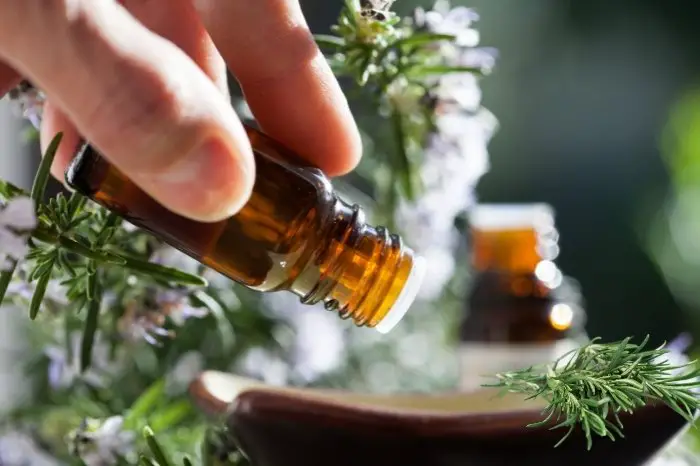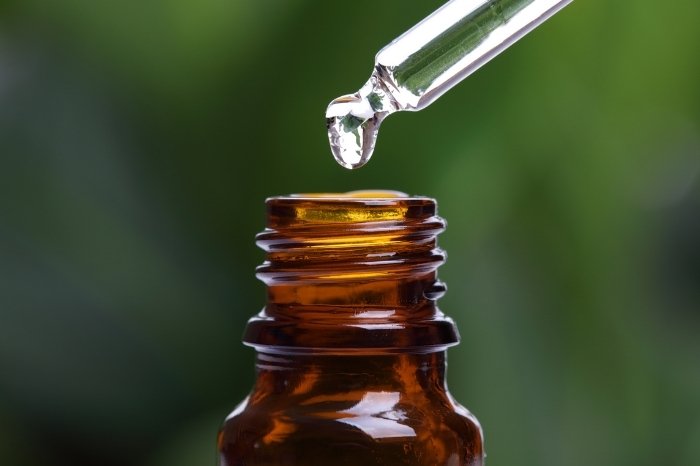Last Updated on June 12, 2022
Ever wondered how to extract rosemary oil with alcohol? Then you don’t need to wonder so far because this is what we will be discussing in this article.
Rosemary is a wonderful aromatic herb that can be grown easily. You can enjoy different health benefits from the use of rosemary herbs.
The leaves of the rosemary herb give both flavors and add a pleasing aroma to dishes. The oil of this hearty rosemary is as well useful in terms of medicinal properties.
In this article, we are going to be covering the question of how to extract rosemary oil with alcohol. We will also discuss some other things related to this. So, read on for some insight on this.
Rosemary Tincture Recipe: How To Extract Rosemary Oil With Alcohol
When we’re talking about tincture, we are talking about making a mixture by combining herbs or flowers with alcohol. The function of the alcohol is to extract the essence of the herb or flower right into the solution. Then the herb or flower is suspended into the alcohol solution to remain there and to be used for a later time.
You can purchase ready-made tinctures from health food stores. And you can as well make a homemade tincture.
So, let’s look into how to extract rosemary oil with alcohol:
- The first thing to do is to harvest both the leaves and flowers off the rosemary plant. Then strip the leaves from the stalk and chop the leaves finely.
- Next, put the rosemary inside a jar. Then cover the herb with alcohol such as rum, vodka, or gun. Shake vigorously for about one minute.
- Allow the jar filled with alcohol to sit for a period of 6 to 8 weeks. Make sure you always give the mixture a shake for about a minute every week.
- Then go ahead and strain the mixture. Then transfer it to a tincture bottle. Alternatively, you can just make a double-strength infusion.
- The tincture should be stored in a cool and dry place.
- One adult dose of two droppers full should be taken 1 to 3 times daily for treatment of some ailment listed below.
Read more about How To Make Plantain Tea
Rosemary Tincture Uses
Rosemary tincture can be used for both cooking and medicinal use. Additionally, rosemary is used for fragrance in soaps and cosmetics.
So, when it comes to medicinal use, rosemary tincture can serve as medicinal properties to treat different ailments such as:
- Rosemary tincture may be used to treat depression.
- It can help relieve anxiety and enhance the nerves. Hence, this makes it perfect for interviews as well as exam studies.
- Rosemary tincture can serve as a tonic for your nervous system as it helps increase the circulation of blood to the brain. It also increases concentration.
Herb Pharm Certified Organic Rosemary Liquid Extract, 1 Fl Oz
- Rosemary tincture can serve as a memory booster. This herb can help slow down the breakdown of acetylcholine. This is a compound that plays a role in a part of the brain that is responsible for memory and reasoning. Because rosemary can also aid in blood circulation to the brain, memory function is enhanced by this means.
- It can aid in migraine and headaches.
- It helps stimulate digestion.
- It has antimicrobial properties. Then it can help in relieving colds, sore throats, flu, and chest infection.
- The Rosemary plant has anti-carcinogenic properties. It can also help minimize the damage caused by ultraviolet rays. This herb also aids in minimizing the chances of developing skin cancer.
- Rosemary may also help with a prostate disorder in men.
- When it comes to the external use of rosemary tincture, it can be turned into an oil rub. This oil rub may aid in relieving the discomfort caused by rheumatism and arthritis.
Check out How To Make The Black Face Mask
How Long Does Rosemary Tincture Last?
Generally, herbal tincture tends to be long-lasting and can last for about 1 to 3 years. When it comes to rosemary tincture, it should be able to last for up to a year if stored properly.
Is Rosemary Tincture Safe?
Although rosemary tincture may be safe to use for some ailments; there are still some contradictions to using it.
Rosemary tincture isn’t safe to be used in pregnancy. This is because it’s been associated with miscarriage in pregnancy. Nursing mothers should also not take rosemary as supplements. But you can safely eat them as a spice in your food.

Also, due to their volatile oil content, a large quantity of rosemary leaves can cause some serious side effect that includes spasms, vomiting, or coma. It may even cause fluid in the lungs (a condition known as pulmonary edema).
If you have an ulcer, high blood pressure, Crohn’s disease, or ulcerative colitis, then you should avoid using rosemary.
Therefore, with all these side effects, it is recommended you take rosemary tincture with care. We recommend you use them under the supervision of a professional health care provider. So, if you can use them in the right dosage, then everything should be fine.
Click Here to Learn about How Much Iodine In Spirulina?
How Much Rosemary Tincture Should I Use?
Now when it comes to the dosage of rosemary tincture, an adult should take one dose of two full droppers. Use this for any ailment listed above in this article and it should be used 1 to 3 times per day. But do not take them for more than 6 weeks.
However, we recommend you speak to your doctor to know the appropriate dose for your condition. But generally, the total daily intake shouldn’t exceed 4 to 6 grams of the dried herb.
Furthermore, you should note that rosemary hasn’t been studied in children. Hence, medicinal use in children under 18 years isn’t recommended. But it is safe to consume as a spice in food.

Final Say On How To Extract Rosemary Oil With Alcohol
When it comes to how to extract rosemary oil with alcohol, it is pretty easy going about this and we have discussed this in this post. Making a rosemary extract with alcohol mainly refers to making a rosemary tincture. And this is made by suspending the herb in the alcohol.
There are so many benefits to using rosemary tincture and we have listed them here. However, this tincture should be used in the right amounts and preferably under the supervision of professional health care.
How long does rosemary tincture last?
How Long Does Rosemary Tincture Last?
Generally, herbal tincture tends to be long lasting and can last for about 1 to 3 years. When it comes to rosemary tincture, it should be able to last for up to a year if stored properly.
Is rosemary tincture safe?
Is rosemary tincture safe?
Although rosemary tincture may be safe to use for some ailments; there are still some contradictions to using it.
Rosemary tincture isn’t safe to be used in pregnancy. This is because it’s been associated with miscarriage in pregnancy. Nursing mothers should also not take rosemary as supplements. But you can safely eat them as a spice in your food.
Also, due to their volatile oil content, a large quantity of rosemary leaves can cause some serious side effect that includes spasms, vomiting, or coma. It may even cause fluid in the lungs (a condition known as pulmonary edema).
If you have an ulcer, high blood pressure, Crohn’s disease, or ulcerative colitis, then you should avoid using rosemary.
Therefore, with all these side effects, it is recommended you take rosemary tincture with care. We recommend you use them under the supervision of a professional health care provider. So, if you can use them in the right dosage, then everything should be fine.
How much rosemary tincture should I use?
How Much Rosemary Tincture Should I Use?
Now when it comes to the dosage of rosemary tincture, an adult should take one dose of two full droppers. Use this for any ailment listed above in this article and it should be used 1 to 3 times per day. But do not take them for more than 6 weeks.
However, we recommend you speak to your doctor to know the appropriate dose for your condition. But generally, the total daily intake shouldn’t exceed 4 to 6 grams of the dried herb.
Furthermore, you should note that rosemary hasn’t been studied in children. Hence, medicinal use in children under 18 years isn’t recommended. But it is safe to consume as a spice in food.

